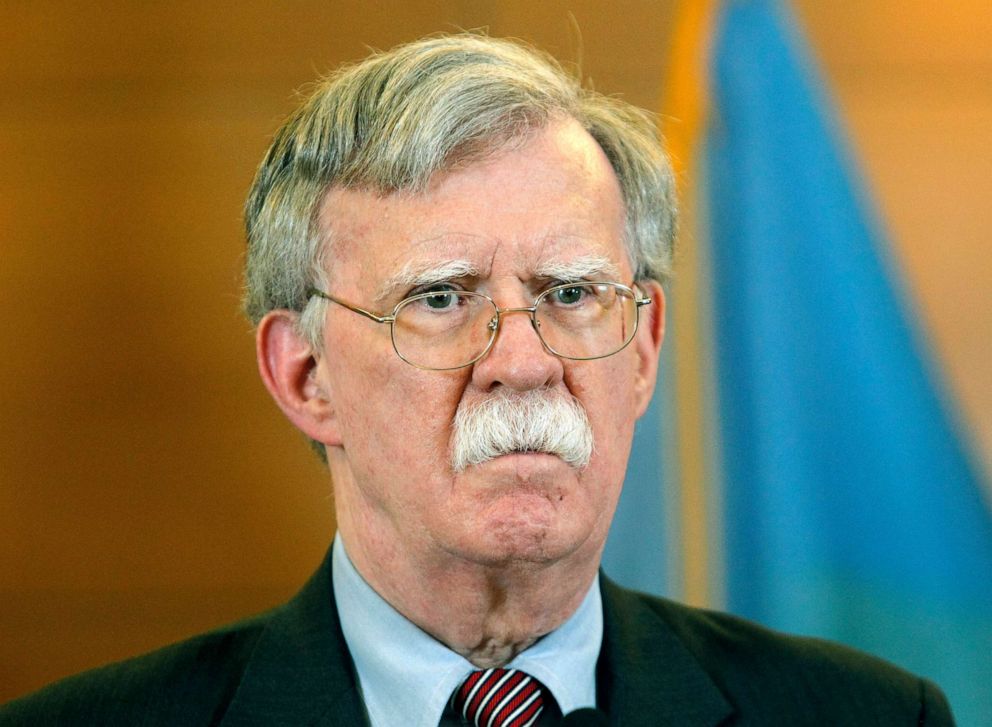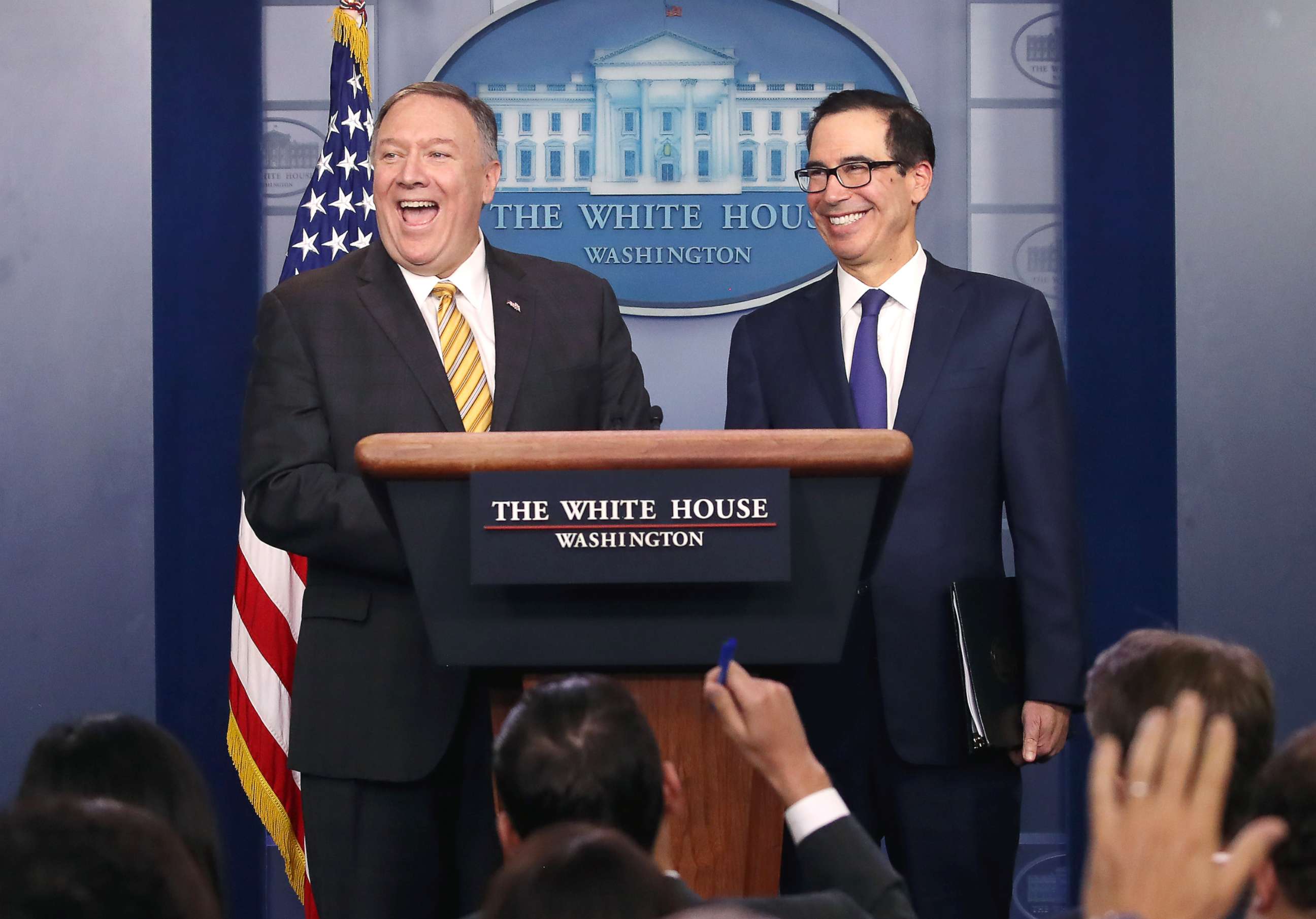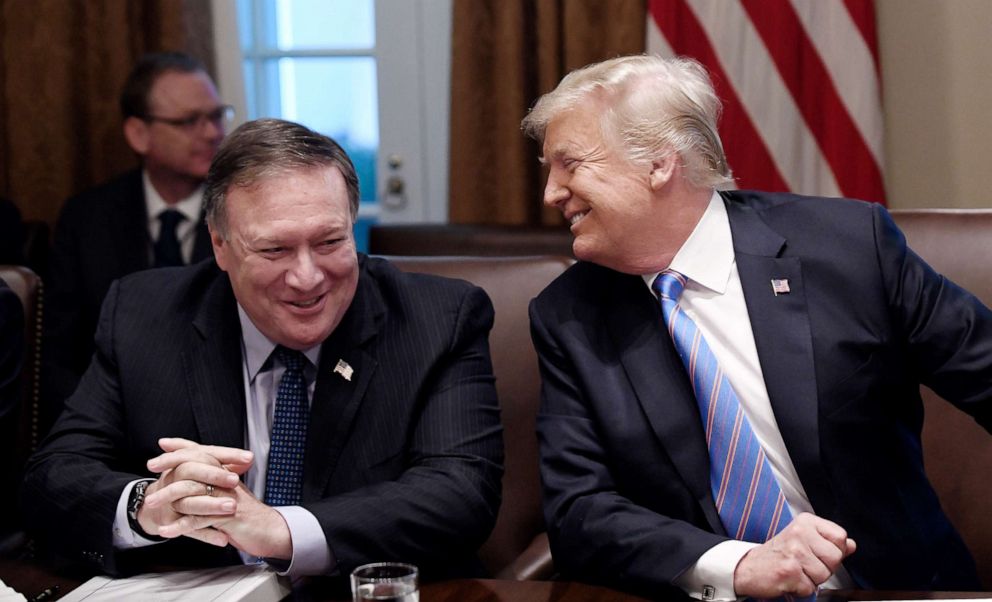With Bolton gone, Trump and Pompeo emboldened to act on foreign policy: ANALYSIS
The departure shows Trump is moving to act on his "dealmaker" instincts.
President Donald Trump knew exactly who John Bolton was when he hired him as national security adviser in April 2018. He knew his hawkish views, including that he'd urged a preemptive strike on North Korea or advocated for regime change in Iran -- militaristic moves that Trump, who campaigned on "ending endless wars," has stood against.
So, to say he was fired because Trump "disagreed strongly with many of his suggestions," as the president tweeted, begs the question: Why was he brought on board in the first place and what happens next?
First, Trump appreciated those differences, at times seizing on it as a good cop, bad cop routine. He once jokingly introduced Bolton during a meeting with another head of state and their delegation as his national security adviser who wanted to drag him into wars, according to a diplomatic source. It seemed to give Trump leverage, creating the appearance that the president could be persuaded to use military might against adversaries from Pyongyang to Tehran to Caracas, Venezuela.

For Bolton, he was also able to made inroads on certain policies, withdrawing the U.S. from arms control pacts, sanctioning the International Criminal Court, and putting pressure on what he called the "Troika of Tyranny" -- Cuba, Venezuela, and Nicaragua.
But that relationship broke down in the end because those differences on Trump's key foreign policy challenges proved too much, and Bolton was never going to change Trump's foreign policy instincts. Trump continues to believe his force of personality can persuade Kim Jong Un to dismantle his nuclear weapons program, could close the gap in U.S. talks with the Taliban, and could get a better deal with Iran than his predecessor, and Bolton opposed all of those moves.
"These have been the president's policies," Secretary of State Mike Pompeo told reporters Tuesday, appearing practically giddy about his rival's departure. "I don't think any leader around the world should make any assumption that because some one of us departs, that President Trump's foreign policy will change in a material way."
But Trump's policies have changed, even as those instincts remain. What was fire and fury against Kim has turned to falling "in love," and when asked whether he would relent on his "maximum pressure" against Iran in order to get a meeting with President Hassan Rouhani at the United Nations General Assembly later this month, Trump said Wednesday, "We'll see what happens."

Trump has always thought of himself as a dealmaker, but now his administration is trying to make good on that image.
Bolton's replacement will have to help foster that image and guide those policies. Among the list of names that have been floated are U.S. special envoy for Iran Brian Hook, special envoy for North Korea Stephen Biegun, ambassador to Germany Richard Grenell, Assistant to the Chairman of the Joint Chiefs of Staff Gen. Ricky Waddell, retired Army colonel and frequent Fox News analyst Douglas Macgregor, and Vice President Mike Pence's National Security Advisor Keith Kellogg.
There's one thing that the majority of them have in common, too: They're men who work in Pompeo's orbit, as his special envoys or ambassadors overseas, or in the case of Waddell, traveling with him often as the Pentagon's representative on State Department trips.
It's a sign of how much in year three of the Trump presidency, his longest-serving national security adviser -- first at the CIA, then State -- has become the real national security adviser, regardless of who is ultimately chosen for the role. Bolton's successor will work in the West Wing, but they will oversee a National Security Council process that's been intentionally diminished by Trump and Bolton -- and it will really be Pompeo driving Trump's "American First" foreign policy into reality.

Pompeo has been able to amass so much influence largely because he's Trump's guy and he follows orders. In an unusual move for a CIA director, Pompeo briefed Trump in person most days, building a warm relationship with the man he was sharply critical of during the 2016 campaign. While he says he candidly shares his advice with Trump even when they disagree, he also takes painstaking efforts to hide any daylight between them publicly -- quick to call questions about their differences or ones that challenge administration policy "ludicrous," "silly," or "inappropriate."
Even where he does disagree with Trump, what has built Trump's trust is that he always moves the president's policies forward, speaking often of the "mission set" he's been given. While Gary Cohn took an unprecedented step to obstruct Trump, or differences drove James Mattis to resign and John Bolton to resign or quit, Pompeo works to implement.
That's why he's still around and even more empowered now.
Bolton had an oft-used phrase when asked about his differences with Trump: "I'm not the National Security Decider. I'm the national security adviser." With the way policy is formulated in the Trump administration, it seems it sometime doesn't really matter who is.




